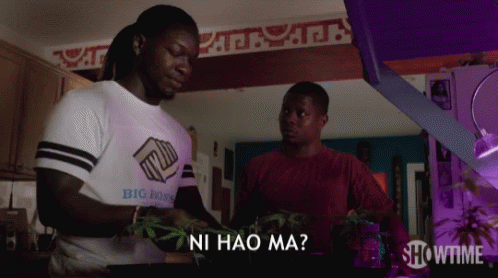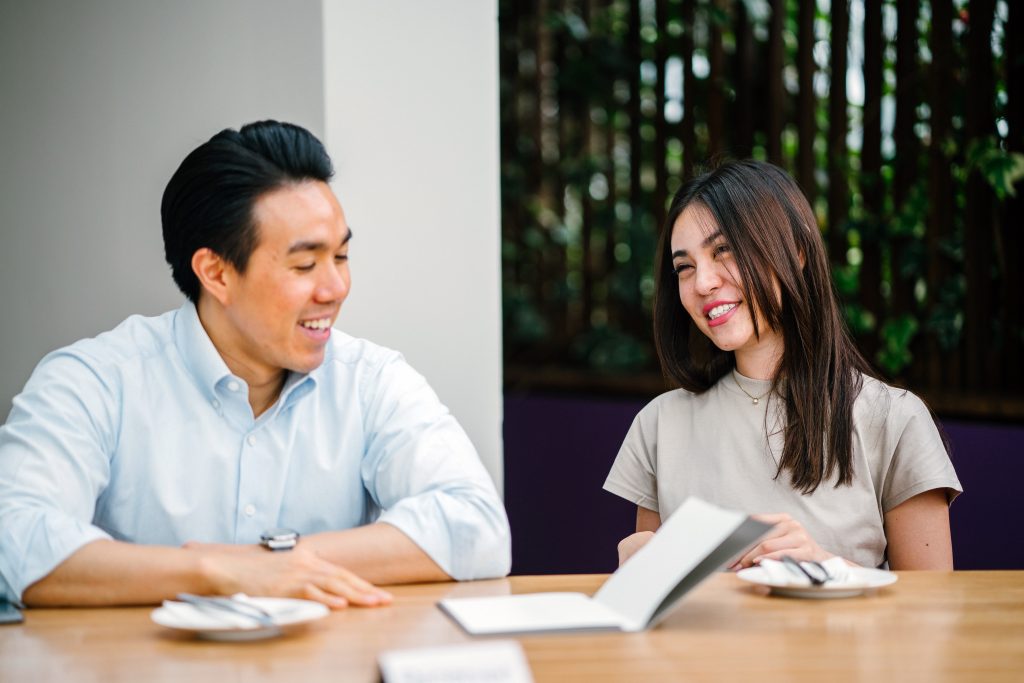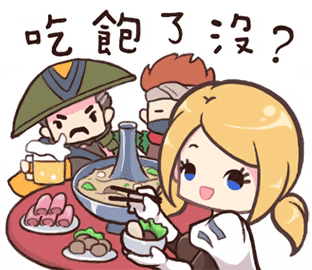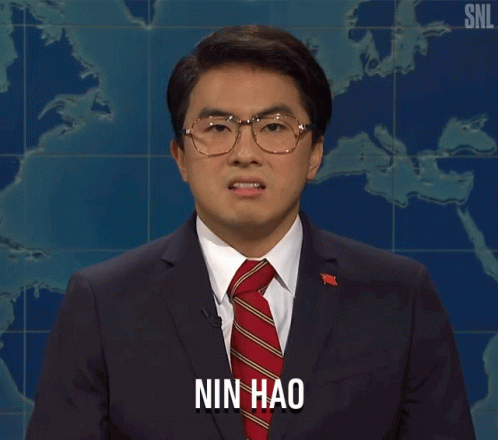你好嗎? (Nǐ Hǎo Ma) is the most common way of asking ‘How Are You?’ in Chinese, other useful ways include 最近怎麼樣? (Zuì Jìn Zěn Me Yàng) which means “How are you recently?”
In fact, using “你好嗎” (Nǐ Hǎo ‘Ma) might not be the best choice when you want to say hi to someone in Chinese culture. Of course, the sentence is grammatically correct, but it is not often used by native speakers and could sound unnatural.
If you are learning from a Chinese friend or a high-qualified Chinese tutor, they might teach you some other ways! For example, you can say “最近怎麼樣? (Zuì Jìn Zěn Me Yàng)”, which means “how are you recently?” This way of greeting is more used by native speakers.
In this article, we are going to introduce you many other ways to say hi in Chinese, with both written texts in simplified and traditional characters. If you are interested, you should also read Chinese numbers 1 to 100 and yes in Chinese to learn more about how to express things in Chinese! Or here to learn more about saying good bye in Chinese!

How are you in Chinese: the Questions
| English | Pinyin | Simplified Chinese | Traditional Chinese |
|---|---|---|---|
| How are you? | Nǐ Hǎo ‘Ma | 你好吗? | 你好嗎? |
| I am doing fine, and you? | Wǒ Hěn Hǎo, Nǐ Ne? | 我很好,你呢? | 我很好,你呢? |
| How are you recently? | Zuì Jìn Rú Hé Ne | 最近如何呢? | 最近如何呢? |
| What are you up to recently? | Zuì Jìn Zaì Máng Shé Mẹ Ne? | 最近在忙什么呢? | 最近在忙什麼呢? |
| Hello everyone! | Dà Jīa Hǎo | 大家好 | 大家好 |
| Hello teacher! | Lǎo Shī Hǎo | 老师好 | 老師好 |
| Is everything going well? | Yí Qìe Shùn Lì Ma | 一切顺利吗 | 一切順利嗎 |
| Is everything fine? | Haí Hǎo Ma | 还好吗? | 還好嗎? |
| Have you eaten? | Nǐ Chī Fàn Le Ma | 你吃饭了吗 | 你吃飯了嗎 |
| Are you full? | Nǐ Chī Bǎo Le Ma | 你吃饱了吗 | 你吃飽了嗎 |
| Where are you going? | Nǐ Yào Qù Nǎ Lǐ | 你要去哪里 | 你要去哪裡 |
| What are you doing today? | Nǐ Jīn Tīan Yào Zùo Shén Me Ne | 你今天要做什么呢 | 你今天要做什麼呢 |
| How’s your body recently? | Shēn Tǐ Haí Hǎo Ma | 身体还好吗 | 身體還好嗎 |
| How are you today? | Jīn Tīan Gùo De Hǎo Ma | 今天过的好吗 | 今天過得好嗎 |
| What’s new recently? | Zuì Jìn Yǒu Shén Me Xīn Xīan Shì | 最近有什么新鲜事 | 最近有什麼新鮮事 |
| What have you been doing recently? | Zuì Jìn Zaì Gàn ma | 最近在干嘛 | 最近在幹嘛 |
15 Ways to Ask & Answer How Are You in Chinese

1. How are you? – Nǐ Hǎo Ma (你好吗?/你好嗎?)
As mentioned above, this is not a commonly used sentence by native speakers, but it is still a correct way to say hello, and it is easy to use and remember.
Also, this sentence is often used when you are not very close to the person that you are talking to. For example, “你好嗎” (Nǐ Hǎo ‘Ma) is sometimes used when you first meet a person or when you haven’t heard from that person for a long time. It might be a little unnatural to say “你好嗎” (Nǐ Hǎo ‘Ma) to your friends.
To respond, you can say:
- I am doing fine, and you? – Wǒ Hěn Hǎo, Nǐ Ne? (我很好,你呢?)
- I am not doing so well, because…. – Bú Taì Hǎo, Yīn Weì…. (不太好,因为…/不太好,因為…)
2. How are you recently? – Zueì Jìn Rú Hé Ne (最近如何呢?)
This phrase is often used when you haven’t seen your friend for a while. This is a very commonly used phrase by native speakers. “如何“ means the “how”, and it can be replaced. This phrase is close to “what are you up to ?”, just to check if anything is new with the person to whom you are talking. Since there is a “recently” in the sentence, this expression is seldom used for a person that you first meet.
To respond, you can say:
- I am busy recently – Wǒ Zueì Jìn Hěn Máng ( 我最近很忙 )
- I am very {happy} recently – Wǒ Zueì Jìn Hěn Kaī Xīn ( 我最近很 {开心} / 我最近很 {開心} )
- You can replace {开心} ( happy ) with other adjectives that describe your mood and condition. Some commonly used adjectives are: Busy-“忙碌”( máng lù ), Sad-”难过“(nán gùo), Doing well-”不错“ ( bú cuo )
3. What are you up to recently? – Zuì Jìn Zaì Máng Shé Mẹ Ne?(最近在忙什么呢?/ 最近在忙什麼呢?)
If you have already known how your friends are doing recently and want to deepen the conversation by asking them what they are involved in, this is the sentence to use. “忙“(máng) means busy, thus the sentence is used to ask people what they have been busy within their lives.
To respond, you can say:
- I am busy working recently- Wǒ Zuì Jìn Máng Zhe Gōng Zuò (我最近忙着工作/我最近忙著工作 )
- I am busy studying recently- Wǒ Zuì Jìn Máng Zhe Dú Shū ( 我最近忙着读书/我最近忙著讀書 )
4. Hello everyone – Dà Jīa Hǎo(大家好)
This is the sentence you need to know when you are speaking to a group of people or in public, for example, when you walk into a party.
Just like “你好“(nǐ hǎo), this expression might sound distant or unnatural to say to your close friends. But this expression is useful when you first meet a group of people, or to make a speech to a group of people.
To respond, you can say:
- Hello- Nǐ Hǎo (你好)
- If you are an attendant of a speech, there is no need to respond. If a person says this to a group of people that includes you, just simply reply with “Nǐ Hǎo” (你好).

5. Hello teacher – Lǎo Shī Hǎo ( 老师好 / 老師好 )
In Chinese culture, it is common to call people by their title in school or the workplace. When the person is older or has more power than you, when you say hello to them, it is obligated to use their title instead of ”you”(你/nǐ).
Other commonly used title are: Boss- Lǎo bǎn( 老板 / 老闆 ), Manager- Jīng lǐ ( 经理 / 經理 )
Thus, if you are learning Chinese with a Chinese tutor or a teacher, don’t forget to say hello to them with this expression!
To respond, you can say:
- Hello- Nǐ Hǎo (你好)
- In this scenario, the common response from the teacher is usually a simple Nǐ Hǎo (你好). If you are the teacher or the boss, you can also use Nǐ Hǎo (你好) to respond!
6. Is everything going well? – Yí Qìe Shùn Lì Ma (一切顺利吗?/ 一切順利嗎?)
You can use this expression if you are meeting your friends regularly, and you know what is happening in their lives, and just want to check if everything is ok or if they need your help.
It is also commonly used when your friends started something new, for example, a new business or a new program, and you want to make sure that the new thing is going well for them.
To respond, you can say:
- It has been going well recently, I have been doing… – Zuì Jìn Dōu Hěn Shùn Lì, Wǒ Zaì Zùo (最近都很顺利,我在做… / 最近都很順利,我在做…)
- It has not been going well recently, because… – Zuì Jìn Bú Taì Shùn Lì, Yīn Weí…. (最近不太顺利,因为… / 最近不太順利,因為…)
7. Is everything fine? – Haí Hǎo Ma (还好吗?/ 還好嗎?)
This is a useful expression when you feel that your friend is not doing very well. When you think your friend looks sick or depressed, you can start the conversation with this expression to show your concern.
It is not often used by someone who looks happy, and it is also sometimes used in a sarcastic way when your friend is acting crazy.
To respond, you can say:
- I am fine, nothing (bad) is going on – Haí Hǎo Ā, Meí Shén Me Shì (还好啊,沒什麼事 )
- not really well, because…– Bú Tai Hǎo, Yīn Weí….(不太好,因为…/ 不太好,因為…)
8. Have you eaten? – Nǐ Chī Fàn Le Ma (你吃饭了吗?/ 你吃飯了嗎?)
In Chinese culture, there is a tradition that when we meet someone, we ask them if they have already eaten or not. Thus, when you meet a friend during lunch or dinner time, you can use this expression to show your care and say hi to them! Usually, when a friend says that they haven’t eaten yet, an option of going for a meal or a snack should be provided.
To respond, you can say:
- Yes, I have. – Ēn, Wǒ Chī Le (嗯,我吃了 / 嗯,我吃了)
- Not Yet – Haí Meí ( 还没 / 還沒 )
9. Are you full? – Nǐ Chī Bǎo Le Ma? (你吃饱了吗?/你吃飽了嗎?)
This expression is the same as the last one. A slight difference might be that it is more often used after mealtimes. But overall, it is an alternative way to ask someone if they have had their meals.
Also, when you are having a meal with your friend, you can also use this expression to check if they are done with the meal.
To respond, you can say:
- Yes I am full – Èn, Wǒ Chī Bǎo Le (嗯,我吃饱了/嗯,我吃飽了)
- Not Yet – Haí Meí (还没/還沒)

10. Where are you going? – Nǐ Yào Qù Nǎ Lǐ? (你要去哪里?/你要去哪裡?)
After having some chit-chat with your friends, or if you run into them, you can use this expression to ask them what their plans are.
This expression is also often used with time. The most commonly used tine adjectives are now- “现在“ (xìanzaì), later- “等一下” (děngyíxìa). Simply put the time adjectives after “Nǐ” to modify your sentence.
To respond, you can say:
- I’m heading to …- Wǒ Yào Qù.. (我要去… )
11. What are you doing today? – Nǐ Jīn Tīan Yào Zùo Shén Me Ne? (你今天要做什么呢?/你今天要做什麼呢?)
This is also a way to ask your friends about their plans. You can also use this expression to start a conversation when you want to ask your friends out.
Just like the previous expression, you can use other time adjectives such as now- “现在“ (xìanzaì), later- “等一下” (děngyíxìa) other than “today”(今天), according to your content.
To respond, you can say:
- I plan to do … – Wǒ Jīn Tīan Dǎ Sùan Yaò… (我今天打算要… )
- I don’t have any plans today- Wǒ Jīn Tīan Meí Yǒu Jì Hùa (我今天没有计划/我今天沒有計畫)
12. How is your health (status) recently? – Shēn Tǐ Haí Hǎo Ma? (身体还好吗?身體還好嗎?)
When you are having conversations with a friend that you know who recently got ill, this is a useful expression to show your care towards them.
Although in English, it is not very often to ask other people about their health, it is not considered very offensive when you talk about health in Chinese culture.
To respond, you can say:
- I am at a healthy status recently- Wǒ Zuì Jìn Shēn Tǐ Dōu Hǎo (我最近身体都好/我最近身體都好)
- I am tired recently -Wǒ Zuì Jìn Hěn Leì (我最近很累)
13. How are you today? – Jīn Tīan Gùo De Hǎo Ma? (今天过的好吗?/今天過得好嗎?)
This expression is usually used when you are starting a conversation later in the day, with someone you are not too close to, for example, when you bump into your neighbor in the evening.
To make the sentence more casual, you can say “Jīn Tīan Zěn Me Yàng? (今天怎么样)”. This shares the same meaning, and it is more often used by someone who you are familiar with.
To respond, you can say:
- I’ve had a great day today- Wǒ Jīn Tīan Gùo De Hěn Hǎo (我今天过得很好/我今天過得很好)
- I had a normal day today- Wǒ Jīn Tīan Gùo De Hěn Pǔ Tōng (我今天过得很普通/我今天過得很普通 )
- Other adjectives you can use are: “Bú Cùo(不错)-Quite alright, “Hěn Zāo”(很糟)-terrible.
14. What’s new recently? – Zuì Jìn Yǒu Shén Me Xīn Xīan Shì? (最近有什么新鲜事?/最近有什麼新鮮事?)
If you have not caught up with your friends for some time, you can use this expression to update their latest news.
The word “新鲜事“ (Xīn Xīan Shì) is a casual way to say something new, thus this expression is not suitable to use with elder people or your manager.
To respond, you can say:
- I went travelling in Taiwan last month- Wǒ Shàng Ge Yùe Qù Taí Wān Wán (我上个月去台湾玩/我上個月去台灣玩)
- I am attending triathlon recently- Wǒ Zuì Jìn Zaì Cháng Shì Tǐe Rén Sān Xìang (我最近在尝试铁人三项/我最近在嘗試鐵人三項的運動)
15. What have you been doing recently? – Zuì Jìn Zaì Gàn ma? (最近在干嘛?/最近在幹嘛?)
This is an alternative way to catch up with your friends. Compared to the last expression, this is more used, and it also sounds more casual.
The word “干嘛”(Gàn ma) is a spoken language to use when you ask someone what are they doing, thus it is inappropriate to use on formal occasions. Instead, you can use “做什么” (Zùo Shén Me) to replace “干嘛”(Gàn ma)
To respond, you can say:
- I have started to learn {cooking} recently- Wǒ Zuì Jìn Kaī Shǐ Xúe Zhǔ Fàn (我最近开始学{煮饭}/我最近開始學{煮飯} )
- You can replace cooking with other activities such as Chinese-”中文“(Zhōng Wén), Work out-”健身“Jìan Shēn)
- I have been watching this show recently- Wǒ Zuì Jìn Kaī Shǐ Kàn Zhè Ge Xīn Jíe Mǜ (我最近开始看这个新节目/我最近開始看這個新節目)
How are you in Chinese: the Answers
| English | Pinyin | Simplified Chinese | Traditional Chinese |
|---|---|---|---|
| I am doing fine, and you? | Wǒ Hěn Hǎo, Nǐ Ne? | 我很好,你呢? | 我很好,你呢? |
| I am not doing so well, because…. | Bú Taì Hǎo, Yīn Weì. | 不太好,因为… | 不太好,因為… |
| I am busy recently | Wǒ Zueì Jìn Hěn Máng | 我最近很忙 | 我最近很忙 |
| I am very {happy} recently | Wǒ Zueì Jìn Hěn Kaī Xīn | 我最近很{开心} | 我最近很{開心} |
| I am busy working recently | Wǒ Zuì Jìn Máng Zhe Gōng Zuò | 我最近忙著工作 | 我最近忙著工作 |
| I am busy studying recently | Wǒ Zuì Jìn Máng Zhe Dú Shū | 我最近忙着读书 | 我最近忙著讀書 |
| It has been going well recently, I have been doing… | Zuì Jìn Dōu Hěn Shùn Lì, Wǒ Zaì Zùo | 最近都很顺利,我在做… | 最近都很順利,我在做… |
| It has not been going well recently, because… | Zuì Jìn Bú Taì Shùn Lì, Yīn Weí…. | 最近不太顺利,因为… | 最近不太順利,因為… |
| I am fine, nothing (bad) is going on | Haí Hǎo Ā, Meí Shén Me Shì | 还好啊,没什么事 | 還好啊,沒什麼事 |
| not really well, because… | Bú Tai Hǎo, Yīn Weí…. | 不太好,因为… | 不太好,因為… |
| Yes, I have (eaten) | Ēn, Wǒ Chī Le | 恩,我吃了 | 恩,我吃了 |
| Not Yet | Haí Meí | 还没 | 還沒 |
| Yes I am full | Èn, Wǒ Chī Bǎo Le | 恩,我吃饱了 | 恩,我吃飽了 |
| I’m heading to … | Wǒ Yào Qù.. | 我要去… | 我要去… |
| I don’t have any plans today | Wǒ Jīn Tīan Meí Yǒu Jì Hùa | 我今天没有计划 | 我今天沒有計畫 |
| I am alright recently. | Wǒ Zuì Jìn Shēn Tǐ Dōu Hǎo | 我最近身体都好 | 我最近身體都好 |
| I am tired recently | Wǒ Zuì Jìn Hěn Leì | 我最近很累 | 我最近很累 |
| I’ve had a great day today | Wǒ Jīn Tīan Gùo De Hěn Hǎo | 我今天过得很好 | 我今天過得很好 |
| I had a normal day today | Wǒ Jīn Tīan Gùo De Hěn Pǔ Tōng | 我今天过得很普通 | 我今天過得很普通 |
| What’s new recently | Zuì Jìn Yǒu Shén Me Xīn Xīan Shì | 最近有什么新鲜事 | 最近有什麼新鮮事 |
| I went travelling in Taiwan last month | Wǒ Shàng Ge Yùe Qù Taí Wān Wán | 我上个月去台湾玩 | 我上個月去台灣玩 |
| I am attending triathlon recently | Wǒ Zuì Jìn Zaì Cháng Shì Tǐe Rén Sān Xìang | 我最近在尝试铁人三项 | 我最近在嘗試鐵人三項的運動 |
| I have started to learn {cooking} recently | Wǒ Zuì Jìn Kaī Shǐ Xúe Zhǔ Fàn | 我最近开始学{煮饭} | 我最近開始學{煮飯} |
| I have been watching this show recently | Wǒ Zuì Jìn Kaī Shǐ Kàn Zhè Ge Xīn Jíe Mǜ | 我最近开始看这个新节目 | 我最近開始看這個新節目 |

Tips on Greeting in the Chinese Culture
- Don’t give someone white flowers, white flowers are only for funerals
- Don’t give someone white envelopes, they are only for funerals
- Don’t give clocks as gifts. Because the Chinese pronunciation for “送鐘” (giving clock) relates to death.
- Don’t point at people. it is very disrespectful to point at someone in the Chinese culture
- Don’t use first names to call others. Use “Mrs.” or “Mr.” with their last name. First names are for close friends and family.

The most common way is to say “你好 ni3 hao3”, which means “Hello” or “Hi.”
Simply reply the person “Ni Hao” will do.
The most direct and common way will be “我很好 wo3 hen2 hao3”.
Say How are you in Chinese to Chinese people!
Knowing how to open up a conversation is always an important part when you want to master a language.
In this article, we have introduced some different ways to say “hi” in Chinese. You can use them to catch up with your friends, in daily lives in also we have introduced some formal ways to use in particular occasions. Also, we have introduced some taboos in Chinese culture. Although it is now a globalization world, it is still important to respect other cultures.
Now that we have learned how to say “hi” if you want to talk about more topics in Chinese, online Chinese courses will be good materials for you to widen your topic of conversation. You can also learn how to write Chinese characters, as it is essential to your Chinese learning journey.
If you are interested in learning Chinese, check out AmazingTalker and book your Chinese session! Good luck!
















